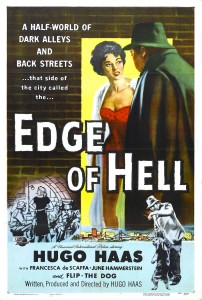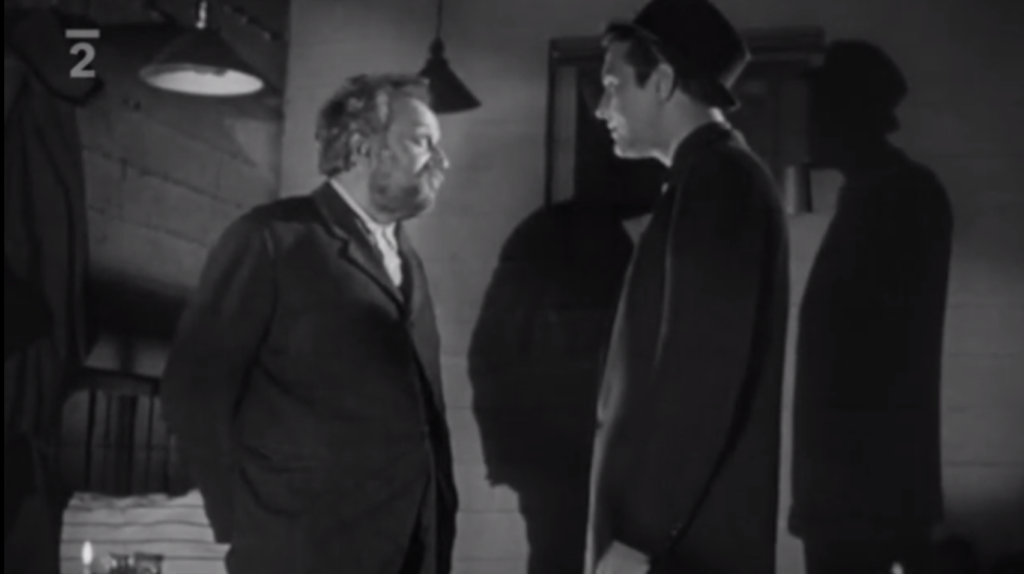Edge of Hell (1956)
“I couldn’t sell Flip for any price.”
|
Synopsis: |
|
Genres, Themes, Actors, and Directors:
Review: Haas uses his simple story as a chance to deftly satirize the values and social mores of upper class society. Without resorting to cliches, Haas cleverly contrasts Valentin’s life on the streets (which is tenuous, but filled with love and friendship) with that of his wealthy new acquaintance (who is well-meaning and kind, but mistakenly believes he can buy whatever he wants — including Flip). One of the most amusing moments in the film occurs during a party Valentin is hosting for his friends after earning some much-needed money at a young boy’s birthday party: sounding for all the world like a group of socialites discussing perfume or furs, a group of hardworking women sit around and debate how to get the smell of onion out of their hands, with one woman bragging that there’s only one technique she deigns to use. Unfortunately, the story’s gloomy trajectory inevitably leads downhill; as a result, the final third of the film is incredibly difficult to sit through. There’s nothing more devastating than watching someone who is forced to part from their beloved pet, which is what ends up happening to our luckless protagonist. In keeping with Haas’s social critique, once Valentin gets sick and can’t perform for money, we’re shown that not even the care and concern of his friends can rescue him from dire straits. Haas may have been a B-level director, but each of his films — at least those listed in Peary’s book (such as Pickup, Bait, and Lizzie) — show proof of his unique and impressive sensibility. Peary lists most of Haas’s titles as Camp Classics, but, with the possible exception of Pickup, I don’t see them this way: his films may be low-budget with patchy acting, but are surprisingly touching, and merit much wider appreciation than they’re currently given. Redeeming Qualities and Moments: Must See? Links: |


One thought on “Edge of Hell (1956)”
First viewing. Not must-see except for those who have a leaning towards indie-esque films in cinema history (this one did get major distribution through Universal-International but it has a definite indie-feel to it).
Haas may have been inspired by Chaplin to switch gears for something this sentimental – but there’s certainly an audience for the story of a boy (or, in this case, a man) and his dog. Still, films by Haas are not easy to find unless one is willing to dig around.
I didn’t quite get the attitude of the rich folks once they finally managed to buy the dog. They soon discover that the dog is not well – but, what?, they never heard of a vet? (~though, of course, healing Flip would alter the film’s conclusion.)
I don’t find the film’s title inappropriate (even if it is a bit misleading); the kind of poverty we witness is rather close to a certain kind of hell.